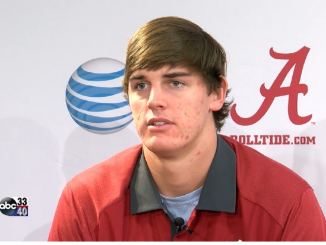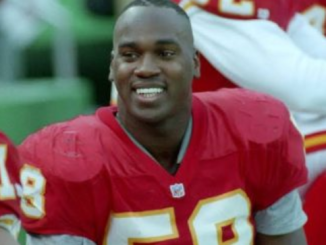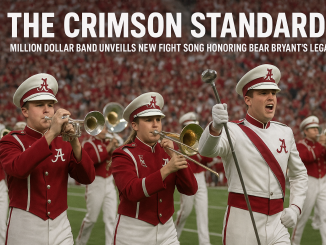
Retired NFL superstar Julio Jones once the Crimson Tide’s electrifying wide receiver and a symbol of Alabama’s unyielding dominance—has resurfaced from a self-imposed hiatus to spearhead a groundbreaking $90 million Name, Image, and Likeness (NIL) consortium. Dubbed the “Southern Supremacy Syndicate,” the initiative unites former rivals from Alabama and arch-nemesis Georgia Bulldogs, blending Atlanta Falcons infrastructure with cutting-edge training facilities in Athens.
But the bold venture isn’t without controversy: it’s already sparked multi-state lawsuits accusing the group of aggressive recruiting poaching, threatening to redraw battle lines in the SEC’s talent wars.
Jones, 36, who hung up his cleats after a 13-year NFL career that included seven Pro Bowls and a Super Bowl ring with the Buccaneers, announced the syndicate Thursday at a packed press conference on the University of Georgia’s Sanford Stadium turf. Flanked by a cadre of SEC alumni heavyweights including Georgia’s own Roquan Smith, the Chicago Bears linebacker and 2017 Butkus Award winner, and Alabama’s Minkah Fitzpatrick, a Pittsburgh Steelers safety Jones framed the consortium as a “unified front for the South’s future athletes.”

“This ain’t about old grudges,” Jones declared, his voice booming over the Athens crowd’s mix of cheers and jeers. “Alabama and Georgia? We’ve bled on the same fields, chased the same dreams. Now, we’re building an empire that puts power back in the hands of the players. The NIL game has changed everything—why not make it work for us, not against us?”
The Southern Supremacy Syndicate represents a seismic shift in the post-NCAA landscape, where NIL deals have ballooned into a $1.2 billion industry. Funded by a mix of venture capital, Falcons ownership stakes (Jones retains minority shares from his 2011-2021 tenure), and high-profile endorsements from Southern brands like Coca-Cola and Delta Air Lines, the $90 million war chest will provide comprehensive support for top recruits.
Services include financial literacy workshops, mental health counseling, personalized branding strategies, and access to state-of-the-art facilities merging Falcons’ Flowery Branch headquarters with UGA’s $40 million expansion of the Athens practice complex.
At its core, the syndicate operates as a talent pipeline, scouting uncommitted high school prospects across the Southeast and offering “Supremacy Scholarships” lucrative NIL packages tied to academic performance and community service.
Early signings include a quartet of five-star recruits: dual-threat QB phenom Jalen “Rocket” Hayes from Mobile, Alabama; edge rusher Kairo “Bulldog” Vance from Savannah; and twin receivers Marcus and Micah Lee from Atlanta’s suburbs. Each package starts at $500,000 annually, escalating with on-field production.
But the fanfare has been drowned out by legal thunder. Within hours of the announcement, attorneys for the University of Alabama and the University of Georgia filed separate suits in federal courts in Birmingham and Athens, alleging the syndicate violates interstate commerce laws by “poaching” recruits mid-recruiting cycle. Alabama’s complaint, led by Montgomery-based firm Hargrove & Associates, claims the group used “deceptive Falcons branding” to lure three verbal commitments away from Tuscaloosa, including a prized offensive lineman who cited “better exposure in Atlanta” as his reason for flipping.
” This is a blatant circumvention of recruiting regulations,” thundered Alabama athletic director Greg Byrne in a statement. “The SEC prides itself on fair play. Merging pro assets with college facilities blurs lines that could corrupt the integrity of amateur athletics.”
Georgia’s lawsuit, filed by Athens powerhouse firm McCurdy & Candler, echoes similar grievances, accusing the syndicate of “state-line shattering” by hosting joint camps that draw talent from Florida, Tennessee, and Louisiana territories long claimed by SEC rivals like Florida and LSU. UGA president Jere Morehead called it “a predatory syndicate masquerading as philanthropy,” pointing to a leaked memo outlining “rival star recruitment incentives” that dangle Falcons tryout opportunities for top performers.
Legal experts are divided. “On one hand, NIL collectives are unregulated Wild West territory,” says sports law professor Dr. Lena Hargrove of Vanderbilt University. “But crossing state lines with pro team ties? That’s a Commerce Clause nightmare. Expect injunctions by week’s end.” Countering that, NIL advocacy group Athletes.org hailed the move as “innovative empowerment,” with executive director Brenda Penland stating, “Players deserve options beyond booster checks. This is evolution, not exploitation.”
The ripple effects extend beyond courtrooms. SEC Commissioner Greg Sankey, in a terse email to member schools, warned of “potential conference sanctions” if the lawsuits uncover ethics violations. Meanwhile, boosters on both sides of the Alabama-Georgia divide are mobilizing: Crimson Tide faithful have launched a #BoycottSupremacy hashtag, amassing 150,000 posts on X in 24 hours, while Dawg Nation counters with #SouthRises, celebrating the Athens infusion as a “middle finger to Tuscaloosa elitism.”
Jones, ever the unflappable icon, dismissed the drama with a grin. “Lawsuits? That’s just noise. We’ve got the talent, the facilities, the vision. Southern Supremacy isn’t a syndicate—it’s supremacy.” As the dust settles, one thing is clear: in the SEC’s eternal blood feud, Jones has lit a fuse that could redefine recruiting for generations. Whether it explodes into reform or rubble remains the billion-dollar question.



Be the first to comment